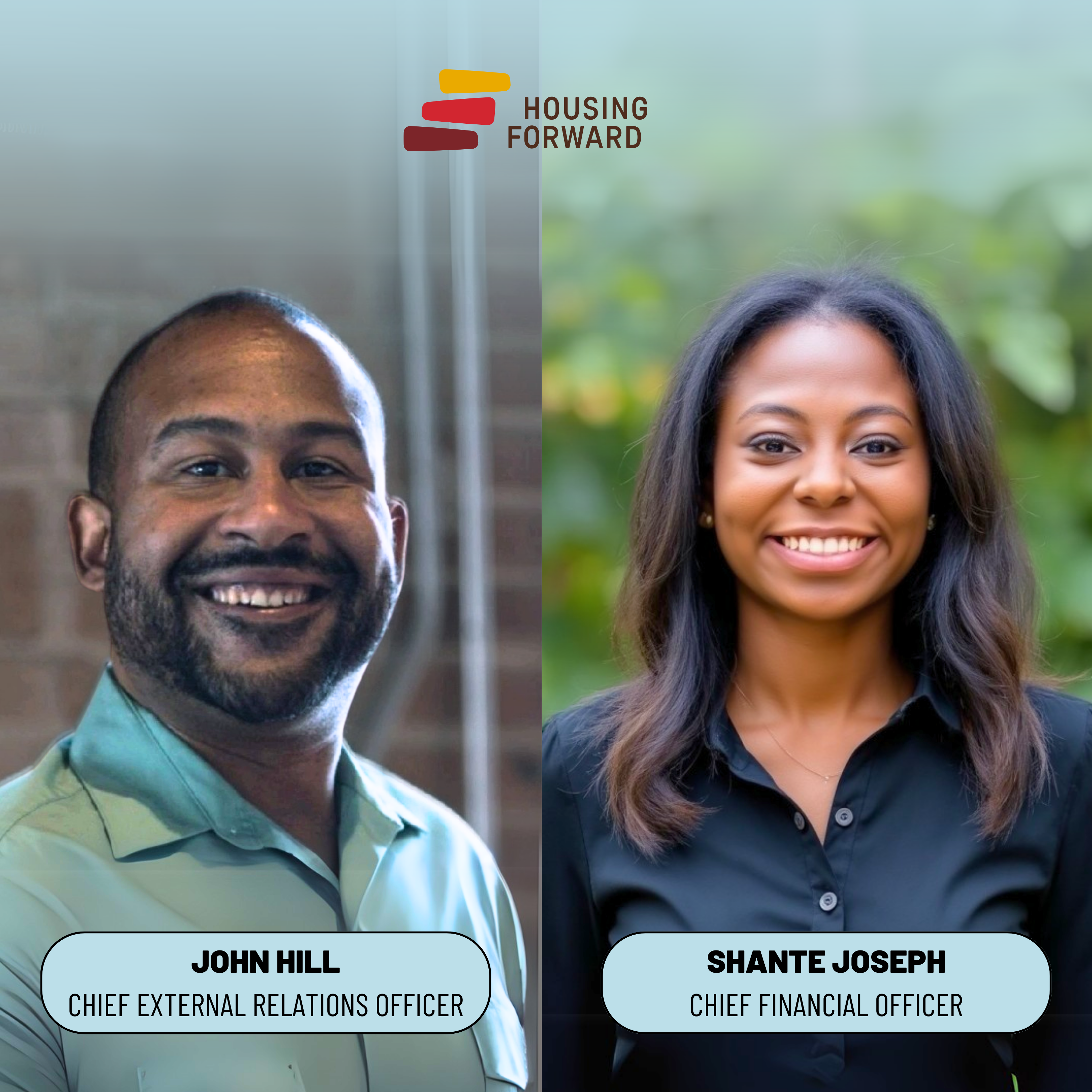As in years past, and in accordance with our ongoing shared homelessness initiative, MDHA and Faith Forward Dallas at Thanksgiving Square (FFD@TGS) are participating in Hunger and Homelessness Awareness Week. During this week-long event, which this year will be November 15-22, 2020, our organizations are encouraging FFD@TGS members, as well as other clergy, to preach about the importance of ending homelessness.
Once again, we are providing one sample sermon, directly below, as well as links to other postings, which clergy can use for their preaching purposes. Please share this blog post with your spiritual leaders and encourage them to preach about homelessness that week.

Sample Sermon
One of my favorite books of the Hebrew Bible is Deuteronomy, and Chapter 21 is, in my view, one of the most intriguing chapters in that entire book. It recounts a fascinating and detailed ritual (JPS 1985 translation):
If, in the land that the LORD your God is assigning you to possess, someone slain is found lying in the open… your elders and magistrates shall go out and measure the distances from the corpse to the nearby towns.
The elders of the town nearest to the corpse shall then take a heifer which has never been worked… down to an everflowing wadi, which is not tilled or sown. There… they shall break the heifer’s neck, [and] wash their hands over the heifer…
And they shall make this declaration: “Our hands did not shed this blood, nor did our eyes see it done. Absolve, O LORD, Your people Israel whom You redeemed, and do not let guilt for the blood of the innocent remain among Your people Israel.”
… Thus you will remove from your midst guilt for the blood of the innocent, for you will be doing what is right in the sight of the LORD.
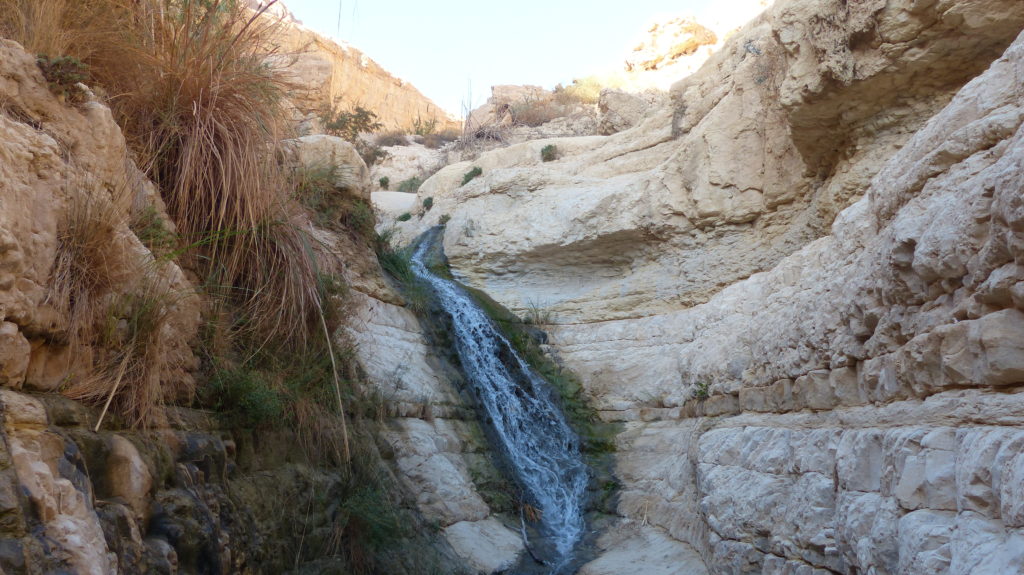
The Ancient Rabbis in the Babylonian Talmud Sotah 44-46 have a field day (pun not intended) with this, and minutely dissect every aspect of it. I found two comments of theirs particularly instructive.
First, they say that the measuring is to be carried out by the Great Sanhedrin. These jurists of the high court, must travel from Jerusalem to that field, to carry out this task. Imagine in our day, the justices of the United States Supreme Court, traveling from Washington, D.C. to stand in a field and measure from the corpse to the towns around it, and you get the picture.
Why must this rather quotidian task be carried out by these national leaders? One reason might be to attract the attention of the nation. Obviously, this same task could be easily performed by anyone, but if done by a local official, no one would hear about it.
Second, the Rabbis wonder, why must the town elders declare that they didn’t murder the person. Would anyone think the town leaders had?! The Rabbis explain that the declaration really means, that they didn’t cause the person’s death through inaction, by not providing for their needs.
Wow. Do you realize what the Rabbis are telling us? They are (implicitly) telling us that this town’s leaders must have set up well functioning systems of social welfare. And, only if they have set up well functioning systems of social welfare, can they honestly declare that they are innocent, if a mishap occurs.
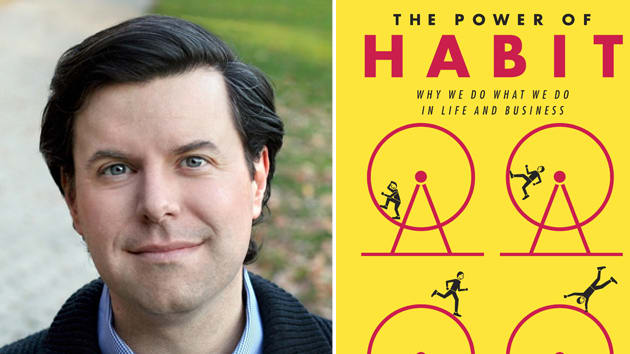
Charles Duhigg and the Power of Habit
In fact, this entire exercise is meant to help this town examine its systems and make the necessary changes to prevent such a terrible outcome in the future. As Charles Duhigg reminds us in The Power of Habit, systems change rarely occurs without a precipitating crisis event. However, even then, there must be a deliberate focus of all stakeholders on meaningful change.
Viewed through the prism of systems thinking, this ritual is meant to, first, focus the attention of leadership and other town stakeholders on what went wrong, i.e. what inputs caused this output, and second, help them figure out what alternative inputs the system needs in order to generate the desired output, i.e. everyone in the town enjoying safety and well-being.
This is how I, personally, interpret the last verse: Thus you will remove from your midst guilt for the blood of the innocent, for you will be doing what is right in the sight of the LORD.
It is interesting to note, though, that the verse switches back from the third person (the town) to the second person (the nation). What is meant by that?
The fact is that quite often systems break down, even though everyone is trying to do what is right. Different actors, different jurisdictions, each try to do their part, however due to each of them having different responsibilities and roles, people fall between the cracks, usually the most vulnerable people, at that.
Scripture highlights this problem, by involving the town and the nation, local leaders and national leaders, and implies not only that they each have a part to play, but also that they must work in concert. Everybody must work together.
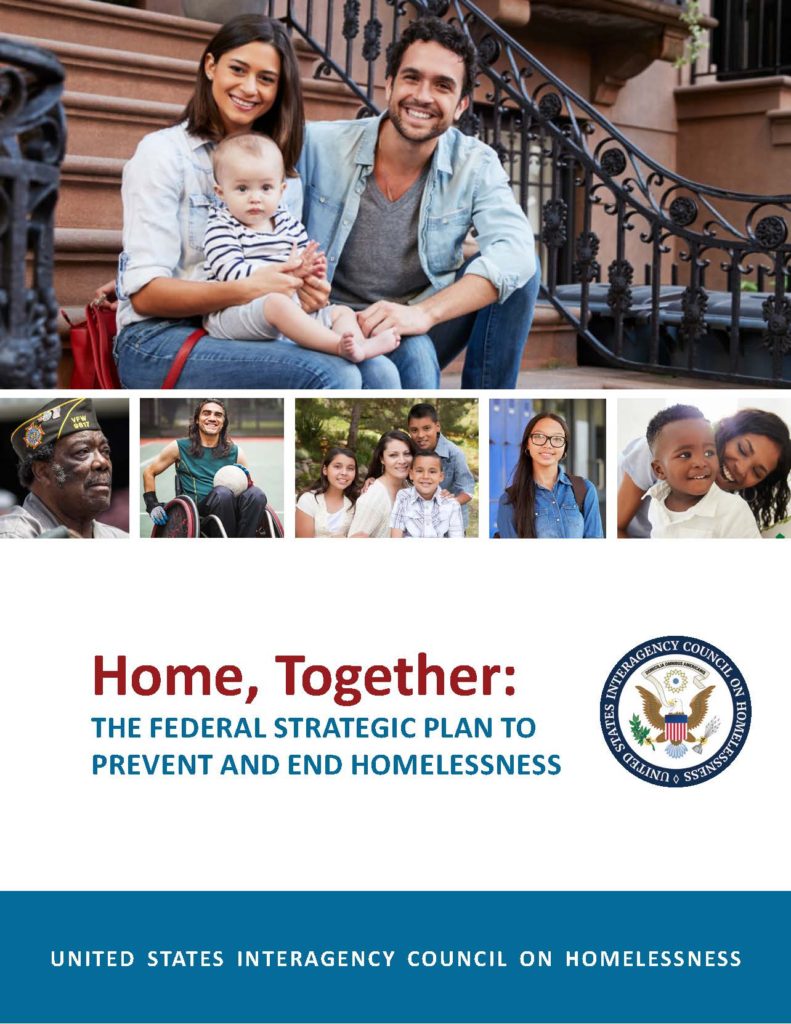
Interestingly, in 2018, when the United States Interagency Council on Homelessness (USICH), wrote a new national strategic plan to end homelessness, under the authority of the Homeless Emergency Assistance and Rapid Transition to Housing (HEARTH) Act of 2009, they called it Home, Together. Together: It’s right there in the name.
This is all relevant to our fight to end homelessness, right here, right now, in Dallas. We can’t end homelessness, if we, as a nation, do not recognize that it is a problem that we have a responsibility to fix. We can’t end homelessness, if we, as a community, do not recognize that the existence of homelessness in Dallas and Collin Counties, means that we have a systemic problem; that we need to change our inputs into the system, if we want a better output. And we can’t change the inputs into the system, if we, all the different actors, across all the different jurisdictions, don’t work together.
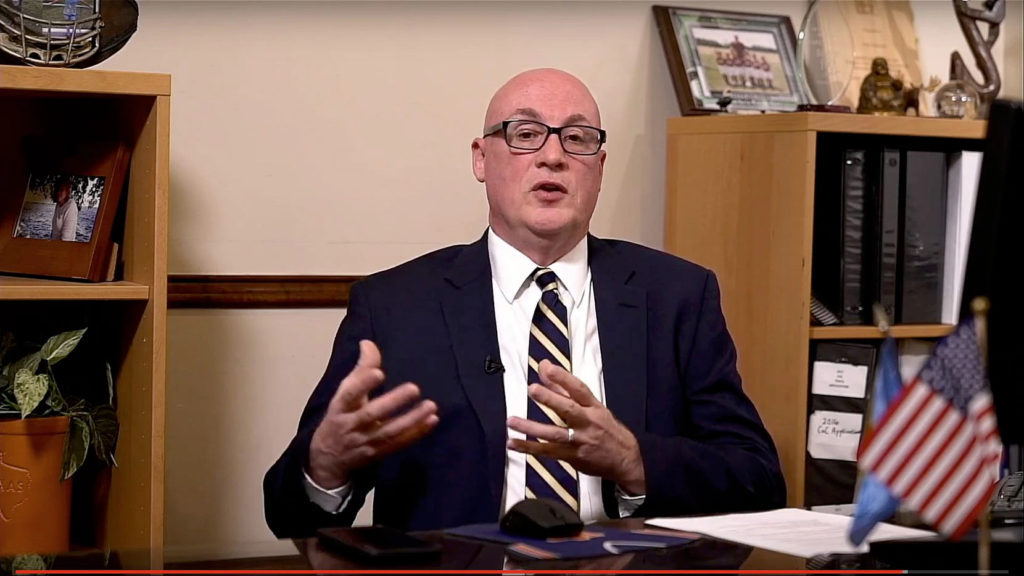
Carl Falconer, MDHA President and CEO, delivering the 2020 State of Homelessness Address
The COVID-19 pandemic has taught us an important lesson along these lines. As the President and CEO of the Metro Dallas Homeless Alliance, Carl Falconer, said in his State of Homelessness Address in March, “It is teaching us to look out for everyone in our community. It is teaching us that as a community we can and will go to great lengths to keep each other safe. It is teaching us that our community is only as strong as the weakest in our community. It is teaching us that we are all connected. It is teaching us that a home is more than four walls and a roof; a home is healthcare, public safety, family, community.”
Right here, in Dallas, right now, in 2020-2021, we have an opportunity, in the words of scripture, to do what is right, for our homeless friends. Let us seize this moment, and together solve this problem that has plagued our fellow citizens, for much too long. All we need is the will to act, and we can bring everyone Home, Together.
Links to Other Postings Clergy Can Use for Preaching Purposes
- Ending Homelessness While Standing on One Foot
- The Messiah at the Gates of Rome
- To Bigotry No Sanction – A Personal and Communal Journey
- Counting the Homeless Reminds Us That Each Person is Made in the Image of God
- To Bigotry No Sanction, To Persecution No Assistance – Audio and PowerPoint
- Homelessness in Dallas is Wakanda
- Invocation at the Dallas Furniture Bank’s CHAIRity Friendraiser – Furnishing Hope for 15 Years
- Our Sin of Exclusion
- The Carpenter’s Assistant
- Broken – Invocation at the Dallas County Commissioners Court
- Invocation at the Dallas Furniture Bank’s 12th CHAIRity Friendraiser
- To Bigotry No Sanction, To Persecution No Assistance
- Address at the East Plano Islamic Center Eid Celebration
- Invocation at the Dallas Furniture Bank’s 11th CHAIRity Friendraiser
- Invocation at the 30th National Philanthropy Day Awards Luncheon
- The Lessons of Unsheltered Homelessness for a Week
